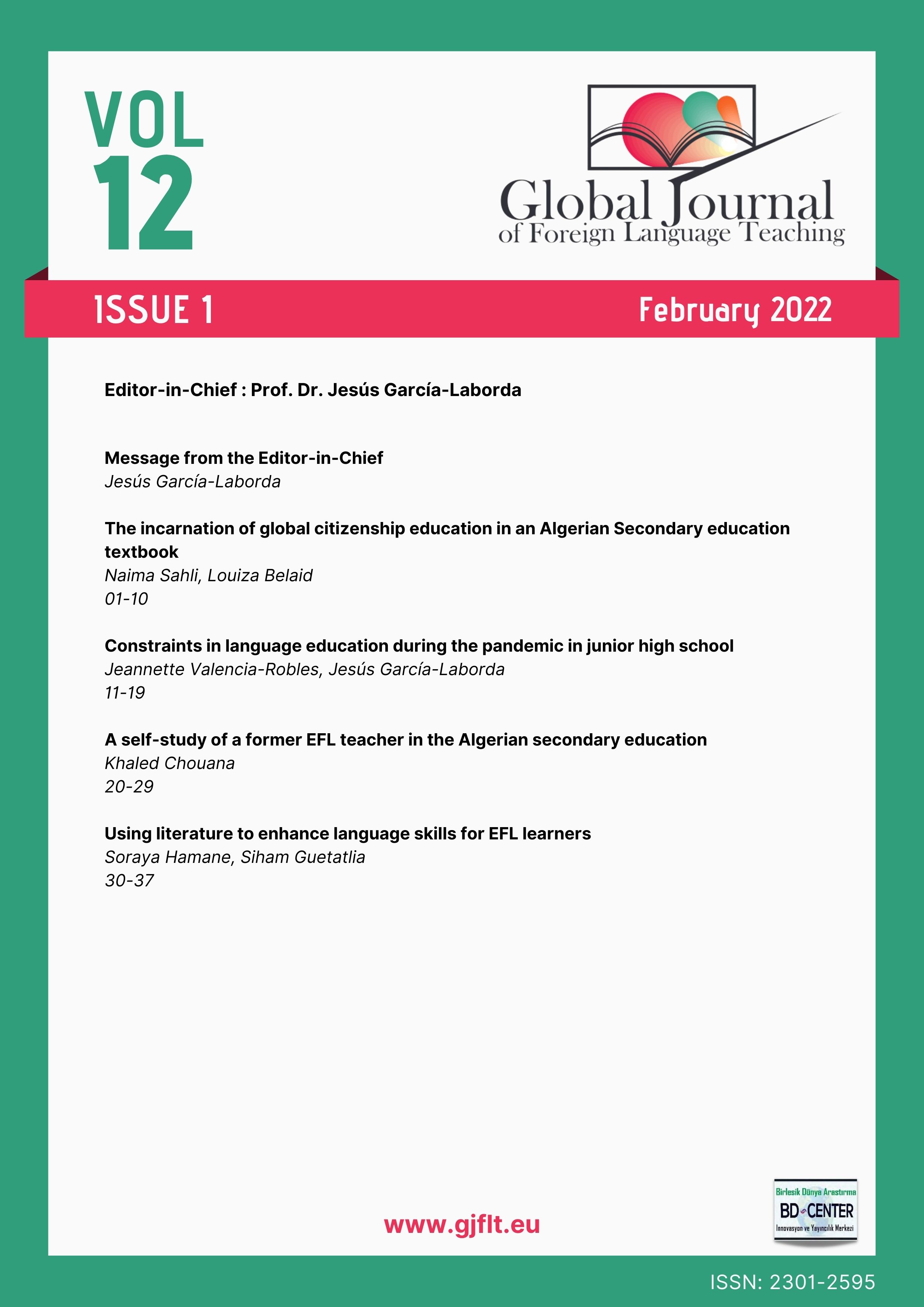A self-study of a former EFL teacher in the Algerian secondary education
Main Article Content
Abstract
Several novices but also veteran teachers face several challenges as they try to implement the competency-based approach in their EFL classes. However, they can teach English better by deploying a number of innovative techniques and strategies instead of trying to implement a teaching method. This descriptive research paper aims to develop some reflections on TEFL at the secondary school level with special reference to Algeria. This research uses a self-study of teaching and teacher education practices (S-STTEP) by following the researcher’s work as an EFL headteacher and coordinator in Algerian secondary education for six years in order to illustrate ways in which personal techniques and strategies can contribute to a deeper understanding of teaching English in Algeria. The paper argues that TEFL in Algeria can evolve for the better as teachers adapt to the contextual factors and promote continuing professional development (CPD) and 21st-century skills.
Keywords: Adaptation; Algerian secondary education; CBA; techniques; TEFL.
Downloads
Article Details

This work is licensed under a Creative Commons Attribution 4.0 International License.
Authors who publish with this journal agree to the following terms:- Authors retain copyright and grant the journal right of first publication with the work simultaneously licensed under a Creative Commons Attribution License that allows others to share the work with an acknowledgement of the work's authorship and initial publication in this journal.
- Authors are able to enter into separate, additional contractual arrangements for the non-exclusive distribution of the journal's published version of the work (e.g., post it to an institutional repository or publish it in a book), with an acknowledgement of its initial publication in this journal.
- Authors are permitted and encouraged to post their work online (e.g., in institutional repositories or on their website) prior to and during the submission process, as it can lead to productive exchanges, as well as earlier and greater citation of published work (SeeThe Effect of Open Access).
